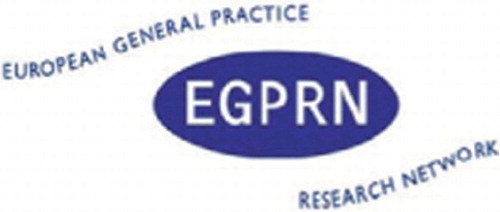
Globalization is a growing trend in our culture, and General Practice/Family Medicine (GP/FM) has not escaped it. It represents a privileged opportunity to contact with other work methods, acquire new skills and establish future research collaborations.
The European General Practice Research Network (EGPRN) grew out of an informal meeting held in the Netherlands in October 1971, between individuals engaged in academic and research activities associated with GP/FM. Nowadays, EGPRN aims to ‘promote and stimulate research in GP/FM, to initiate and co-ordinate multinational research projects, to exchange research experiences and to develop a valid international base for GP.’ In 2009, upon request of Wonca Europe, the EGPRN developed its Research Agenda, which points out research needs and action points for health and research policy (see: http://www.egprn.org).
Sharing a common background as young physicians and researchers, we aim to describe briefly the main advantages of the EGPRN meetings as a privileged environment for those seeking to manage clinical work and research.
EGPRN Meetings
EGPRN meetings started to be organized, becoming biannual since November 1974. The complete conference programme includes keynote lectures and plenary sessions on relevant themes of primary care and GP/FM, as well as posters and freestanding oral presentations.
Comment. A considerable time is allocated to discussion after presentations, especially on methodological issues. For a student, trainee, resident or young physician, these meetings provide a privileged opportunity to interact with renowned European researchers in the field of GP/FM. They also get in touch with new research ideas and research methods, often linked epidemiological to sociological research methodology, applied to the primary care setting. Overall, the meeting has a very cosy, almost cocooning environment. There is the concern to integrate easily first-time participants, who are asked to wear a ‘blue dot’ sticker for their identification. Plus, it allows inclusion of the participants’ academic experience as a factor when evaluating their work and presentations.
Pre-conference workshops and research courses
Half-day preconference workshops are organized to promote highly interactive one-on-one and small group discussion sessions. The focus is mainly on research skills, and topics are usually chosen according to the needs of the host country. Another event that sometimes occurs is the one-week research course, which is organized independently from the meeting, by the host country.
Comment. Although these courses have provided a high-quality and consistent teaching experience throughout the years, it would be interesting to have an appraisal mechanism for the course teachers, mediated by the EGPRN. The recognition of the teachers’ competences would not only further enrich the courses, but also raise the general standard of the meeting.
One slide, five minutes—presentations and posters
One interesting category for oral presentations is the ‘one slide, five minutes presentation’, especially dedicated to the communication of research ideas or yet unfinished work. The presentation comprises just one slide, which is presented strictly within five minutes. Poster presentations also have an original setting: the work is presented by an independent participant selected a priori by the organizing committee.
Comment. A clear advantage of this highly interactive method is that it allows a better understanding of how clear the work is displayed in the poster, for someone who reads it for the first time. Following that brief presentation, the author has the opportunity to further explain the work to the audience.
Feedback
An important feature of the presentations at the EGPRN meeting is the possibility to obtain feedback (if requested) concerning communication skills, presentation techniques and arguing competencies. A chosen participant observes and evaluates the specific presentation, according to a pre-established checklist.
Practice visits and social night
Apart from the conference programme, another interesting aspect of these meetings is the possibility to visit a local primary health care centre. Last, but not least, the social night is the conference's final event. It takes place on the last night of the conference and includes a dinner and a party, which occur in a highly informal environment.
Comment. The practice visits present a perfect opportunity to better comprehend how colleagues from different countries manage their triple activities (academic, research and clinical practice). It also provides a better understanding of the specific health care system of each country, promoting reflection about better solutions and new ideas to implement in the participant's country. Furthermore, practice visits and the social night have the advantage of easing the communication between all participants and is a definite ‘plus’ for team-building.
CONCLUSION
In our opinion, the EGPRN conference presents a unique and extremely valuable opportunity for growth and self-improvement in clinical research. Therefore, it is a perfect fit for trainees, residents and young physicians aiming to manage clinical practice and research efficiently in the GP/FM setting.